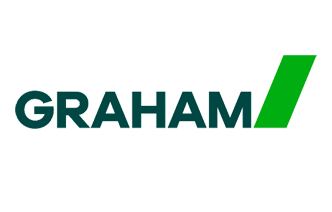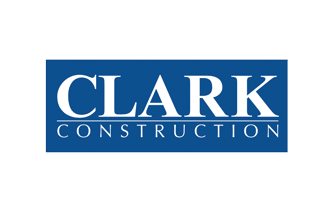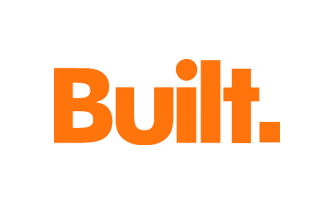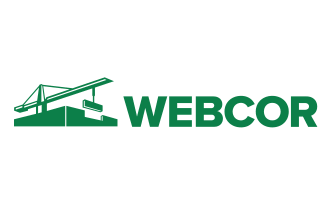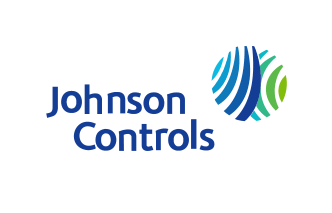Seven Traits of Profitable Specialty Contractors
 Anyone who has managed a construction company, department, or project knows profitability can be challenging. Intense competition, fluctuating market conditions and other factors often result in tight profit margins.
Anyone who has managed a construction company, department, or project knows profitability can be challenging. Intense competition, fluctuating market conditions and other factors often result in tight profit margins.
Even with numerous challenges, specialty contracting can be profitable. Here are seven traits of profitable contractors.
In-Demand Expertise
Specialty contractors thrive on providing expertise in specific areas; however, if that expertise is not in demand, it has little value. Successful firms align their expertise with highly sought-after services.
For example, an electrical contractor specializing in installing automated manufacturing equipment might find high demand for their services in a region with strong manufacturing growth. That same firm might struggle in a region without such activity.
Because specialty firms are hired for their unique expertise, they can often charge more for their work. Firms without a specific niche, meanwhile, are often selected based on price alone.
Effective Marketing
One task facing all contractors is marketing – the act of promoting and/or selling services. Established firms with proven track records might rely heavily on word of mouth, but most firms need to proactively get their firm’s name out to the right audience. Successful firms generally use a combination of electronic media, printed materials and networking to achieve that.
Electronic marketing methods might include email communications, newsletters, websites, blogs, and social media. Printed materials, such as brochures and business cards, while becoming less prevalent, still provide value when a potential customer asks for information in a face-to-face meeting. Networking can occur formally or informally—at social gatherings, on the golf course and through professional associations. Firms with healthy marketing budgets might also enlist the services of a marketing or public relations consultant for assistance in marketing efforts.
Proper Use of Tools and Technology
Most contractors recognize the importance of equipping workers with the right tools. Profitable firms also recognize the importance of maintaining those tools and keeping them in top working order. Investment in equipment maintenance, along with up-to-date inventories and maintenance records, can help avoid costly down time and inefficient performance.
And tools include more than hammers, drills and other traditional items. Information technology in both office and field settings can often improve efficiency and productivity. This might include current hardware and software for project management and accounting, mobile devices for communication, and sensors to monitor equipment performance and usage.
Robotics and automation are finding more use in performing repetitive tasks, such as laying out mechanical work, but are still far from commonplace on construction sites.
The COVID-19 pandemic forced many firms to conduct virtual meetings and site visits, and some firms are adopting these tools as permanent fixtures in the toolbox. E-commerce has also helped firms procure materials and address supply chain challenges.
Clear Communication
Legal experts often cite communication problems as the root cause of many construction disputes. This might include communication with and between staff members, clients, suppliers and other contractors. Successful contractors maintain clear communication throughout the course of each project, as well as in ongoing business operations. Communication may be verbal, written or some combination of these forms.
As an example, a prime contractor on a residential project might serve as the primary source of information for the homeowner, but occasionally rely on a subcontractor to communicate specific scheduling or other details to the homeowner. In those cases, all parties need to be clear on who’s communicating what information to whom. A quick check-in via telephone, text or email can often help avoid communication problems.
Another helpful practice is to always re-read letters and emails before sending them. Ideally, someone other than the author should review key correspondence before it is sent. What may seem obvious to the author might be unclear or misunderstood by another party.
Healthy Culture
Construction is characterized by hard physical work in sometimes difficult conditions. Successful firms recognize the importance of providing a healthy work environment for workers, both in the field and the office. This includes hiring qualified employees who function as a team, providing proper training, maintaining safe and healthy working conditions, and placing a high priority on employee retention.
Again, the pandemic has challenged many firms in this area. While certain administrative work can be done remotely, much of construction requires on-site work, and firms have had to navigate social distancing, masking, vaccination and other challenges. Successful firms have established health and safety policies in line with governmental guidelines to protect workers. These firms also have clear policies prohibiting harassment, discrimination and other harmful practices.
Consistent Contracting Practices
Profitable firms follow consistent contracting practices from start to finish. This includes pursuing appropriate projects at the outset. New firms may be tempted to pursue every project in sight, but experienced, profitable firms recognize their limitations and pursue projects on which they are most likely to succeed.
Profitable firms also have consistent bidding and estimating processes that use current technology and pricing information. Simply winning a project does not guarantee financial success, particularly if the project is underpriced.
Once the project has been won, clear written contracts are also key to success. Work done “on a handshake” might seem fine at the outset of a project, but when issues arise on scope, scheduling and payment, a written contract can help settle those issues.
Partnering with other firms has also proven helpful for many construction firms. Working with a reputable contractor with complementary skills can help firms land more work and expand capabilities.
Solid Management Processes
Finally, profitable firms employ key management processes to help make sure projects and employees are successful. This includes establishing and following project management and quality management processes, identifying and managing risks, and using sound financial management practices.
Project management includes monitoring the areas previously discussed, and others, to help a project succeed. Quality management includes both quality control (i.e., checking the work) and quality assurance (i.e., making sure quality processes are followed). Risk management can vary from informal review of whether a project is worth pursuing to more formal identification and quantification of risks that might affect project outcomes.
Financial management obviously can affect profitability directly. Profitable firms continually monitor the financial state of each project and the firm as a whole and use contractual mechanisms to make sure they are paid promptly.
Recap
For successful firms, some of these traits come naturally based on a firm’s makeup, but most require effort. And for small firms, there’s an added dilemma – how to touch all these bases with limited staff. It’s clearly a steep challenge, and staff members often have to wear multiple hats. But for the industrious types often drawn to construction as a career, the path to profitability is manageable through hard work and wise use of available resources.
To learn more about how Fieldwire can help Specialty Contractors, please register for a live demo below.
Andrew Roe is a civil engineer and technical writer based in Minneapolis, MN. He is president of AGR Associates, Inc., and writes regularly for Fieldwire and various industry publications on construction, engineering, and other technology topics.

 Andrew Roe •
Andrew Roe • 


